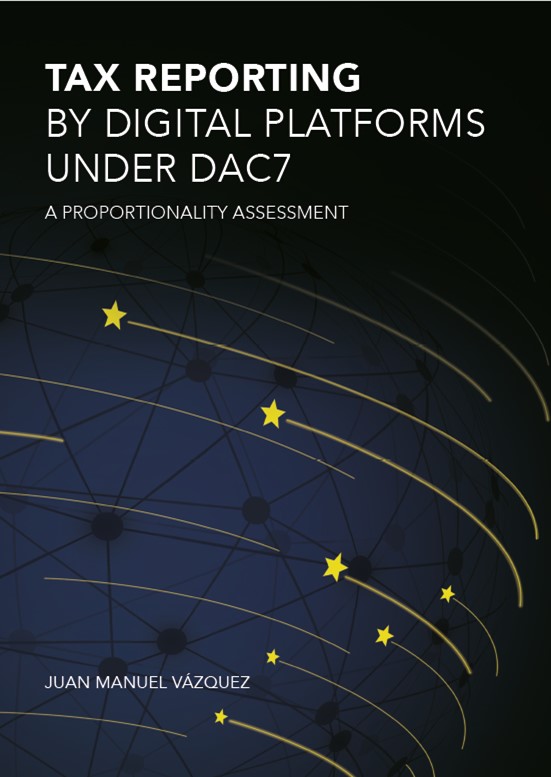
Digital platforms facilitate a large number of economic transactions and, owing to their prominent role in connecting different sides of the market, they hold valuable information about their users and their transactions. The information platforms have about their users is particularly useful for the correct functioning of tax systems as it concerns sellers (i.e. taxpayers) using such interfaces to carry out economic activities and earn taxable income. Since, without the collaboration of digital platforms, the income earned by sellers in the sharing and gig economy is not always visible to tax administrations, nor is itself reported by these taxpayers, opportunities for tax evasion have arisen within the latter economic sector. To address this issue, in the past few years, governments around the globe have started ‘deputizing’ private platforms by involving them in their fight against tax evasion. The collaboration of private platforms in this regard has been materialized through different policy approaches, which include voluntary and mandatory measures aiming to either improve taxpayers’ education and encourage self-reporting, ensure third-party reporting of sellers’ data to tax authorities, or, in some cases, even the collection and remittance of sellers’ taxes. Inspired by the work the OECD carried out at the global level, in early 2021, the European Union (EU) adopted new tax transparency rules, providing an EU-standardised tax reporting requirement for digital platforms. These new rules were introduced through a sixth amendment to Council Directive 2011/16/EU on administrative cooperation in the field of taxation (DAC7). In a nutshell, these rules require third-party operators of digital platforms to systematically collect, verify, store, and report to the tax authorities of the Member States specific personal and transactional data regarding their sellers. Such information is then automatically exchanged between EU tax authorities. Despite the existence of a clear public interest behind the ‘deputization’of private platforms and the generalized acceptance of tax information reporting (data sharing) by third-party intermediaries to combat tax evasion, the introduction of specific tax reporting requirements under DAC7 has raised a significant concern, which to date, has neither been given sufficient attention nor has it yet been comprehensively addressed by scholars. This concern refers to whether DAC7 rules for digital platforms are a proportionate public measure. While it is evident that DAC7 rules pursue a worthy goal (e.g. combating tax evasion) that would prima facie justify a public intrusion into the private sphere of both platform sellers and third-party platform operators, the question that arises in this regard is whether such intrusion does not go beyond the degree that it is necessary in the public interest. Such a question essentially entails a matter of ‘means’ and ‘ends’ or, in other words, of proportionality.
The dissertation of Juan Manuel Vázquez aims to provide a comprehensive and in-depth assessment of the proportionality of DAC7 rules for digital platforms from a legal and tax policy perspective. In particular, it addresses whether DAC7 rules for digital platforms are consistent with the EU general principle of proportionality from both a policy and a legal perspective and, if this is not the case, what improvements could be introduced to ensure such consistency. The study demonstrates that while DAC7 is generally a measure consistent with the principle of proportionality in its policy and legal dimensions, it nevertheless has certain specific elements that are not consistent with such a principle and compromise the measure’s balance.
Furthermore, the study makes several short- and medium-term recommendations to address these issues and improve the current version of DAC7 without introducing significant changes to the Directive and respecting the chosen policy option currently embodied therein (namely imposing mandatory and periodic information reporting obligations on platforms). Because of some structural limitations of current tax systems and their inevitable impact on DAC7, the study also makes long-term recommendations to enhance the proportionality of this legal framework, which consist of moving towards an integration of data sharing requirements into the natural systems used by third-party platforms and taxpayers as part of their daily lives and businesses (i.e. an Integrated Data Sharing Model or IDSM).
Vázquez defended his thesis on May 13th at the University of Amsterdam. Promotors: prof. dr. Dennis Weber and prof. dr. mr. Daniël Smit. Copromotor: dr. Giogio Beretta.
Juan Manuel Vázquez
Tax Reporting by Digital Platforms under DAC7: A Proportionality Assessment
The summary of the thesis is available in open access via UvA’s public repository.
The complete thesis is in the process of being commercially published as a book by Wolters Kluwer.

